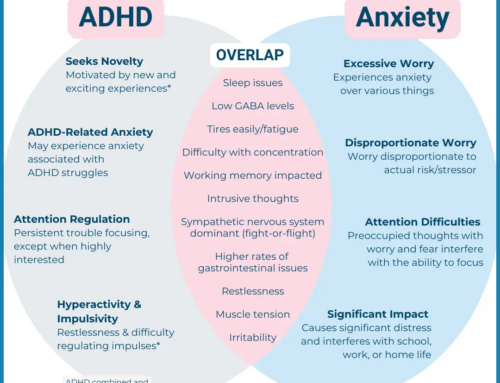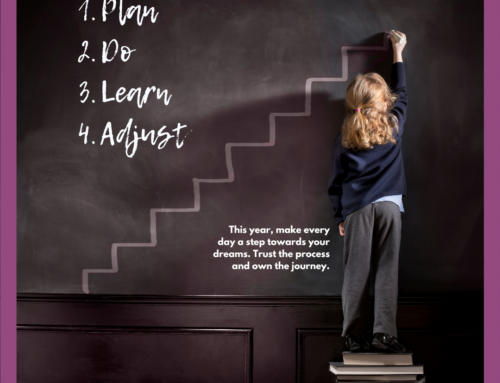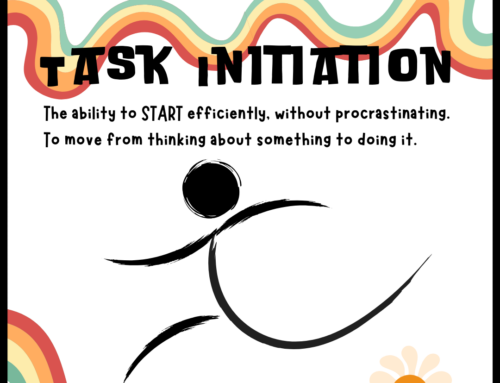Last week we waded into the fascinating world of Executive Functions (EF) in family dynamics. EF mismatches between parents and kids, as well as between siblings, can account for a good deal of the strife in households with school-age kiddos. School is, after all, a daily challenge to our kids’ Executive Functions —mental processes like working memory, attention, and impulse control that regulate learning and behavior. Our kids spend all day trying to squeeze their minds into the “right” shape—the shape that means good test scores and still bodies and praise from teachers—then come home and navigate the routines, expectations, abilities, and (inevitable, HUMAN) shortfalls within their own families. Of course our families are tired at the day’s end. Of course we fall in and out of harmony.
But if, as a parent, you find yourself in frustrating patterns of conflict—if you feel like the same problems recycle themselves (“You’re JUST NOW studying for your midterm test tomorrow?!”) and you’re having trouble breaking free, it might be time to get NERDY WITH YELLOW PARACHUTE. Take a step back, take a breath, and let’s try to understand your family’s emotional ecosystem. Let’s DO this!
Assess Everyone’s Executive Functions
Try filling out EF assessments for the whole family—one for adults and older teens, and age-specific assessments for younger kids (grades 1-3, 4-5, and 6-8 ). Once you have a handle on the EF profiles of each family member you can start thinking about how to work with your parenting style and motivations, as well as your own EF strengths and weaknesses (key!)
One of my favorite handbooks for parents (all adults really), The Smart But Scattered Guide To Success, illustrates how each specific Executive Function plays out in a home environment. If you score weaker in “Working Memory,” for example, you probably have a tough time keeping track of daily tasks (and your keys), but if you also have strong “Emotional Control,” you aren’t easily rattled by minor setbacks in your day (like misplacing your keys).
Take a look at your family’s EF scores and note the overlaps, clashes, and complements. Try talking about these patterns as a family—can you think of specific examples of each person’s strengths and weaknesses? Times where your unique EF profiles worked well together and times they definitely did not?
For example:
Hours before leaving for the family vacation, Mom realized she was running later at work than she anticipated. So, she decided to change plans and head straight to the airport. She called Dad ahead of time to reassure him since he gets anxious over minor setbacks, and had spent months planning every detail of the vacation. Reassured, Dad adapted to the new plan. Meanwhile, Little Brother had finished packing his suitcase on his own, and at the airport, Big Sister remembered exactly where Dad had put the boarding passes. Everyone made the flight and had a relaxing time In Hawaii. The End. Sigh. Cue dreamy music.
Or:
Mom was running late and decided to change plans and head straight for the airport BUT Dad was already freaking out by the time she called. Dad’s anxiety made it hard for Little Brother to focus on packing his suitcase, and he forgot to pack his bathing suit and pajamas. When the family met up at the airport, Mom felt guilty about Dad’s anxiety and snapped at Big Sister, who in turn snapped at Little Brother. Everyone made the flight and felt icky. Awkward Silence/The End.
Practice Asking Each Other For (And Giving) Help
Everyone will have their own EF superpower(s) that they can use to help out the rest of the family. Does your daughter have an uncannily good sense of time? She can be in charge of the “5-Minute Warning” before everyone needs to pile into the car. Is your son extremely goal-directed? He can help another sibling (or even a parent) come up with a plan to follow to reach his or her own goals. [*Note* siblings should not be in charge of each other until the advanced stages of superpower use. Take the hint from a family who has gone before and experienced (a little) friction.]
See if your family can offer the same collaborative effort to the areas where you struggle most. Once you understand the “why” of the behaviors that drive each other nuts, you can talk about how to work with, around, or through EF sore spots. Every once in a while, I ask my kids: “Is there anything I can do differently or do more to help you in ____ situation?” You can ask your partner the same question—where do you feel most vulnerable/scattered/stressed/lost, and how can I help you feel better?
We won’t all have ideal EF profiles to start, but we can improve on our weaknesses AND in the way we fit together. Cultivating family harmony isn’t only about one person’s behaviors; it’s also about creating an environment that nurtures everyone’s success using props, processes, and other people. If one of your kiddos is easily distracted, carve out a quiet space just for her. If another has low stress tolerance, try letting him pick activities that don’t put him on the spot (maybe soccer over say, a spelling bee). The key is seeing ourselves as we are and adapting to those selves with love. We can challenge ourselves without trying to remake ourselves.
Set Parenting Goals
Parents are people. Just like any other life arena, we need motivation, to be able to measure our progress and recognize the rewards for our love and labor. Start small and focus on one thing—really one thing. Like any goal or improvement plan, the more focused we are, the more astute we can be at measuring and reflecting, and the more fulfilled we can be when we see progress.
Pick one aspect of parenting that makes your heart happy—it can be as small as watching the kids clean up their own toothpaste spit from the bathroom sink and you don’t have to do it, or pleases and thank yous at restaurants. It can be watching siblings help each other or sleepy morning hugs. There’s no right or wrong here. Listen to your heart in the search for what validates you.
Once you know what motivates you, communicate that to your kiddos either individually or at a time when you’re all relaxed and open to a heartfelt conversation. You can start by saying, “When you __________, I feel so________ (loved, respected, proud, etc)” Once you’ve told them how important that activity or action is to you, you can ask for their help in continuing it and recognizing it. The next time they clean their toothpaste spit off the sink, Point it out, shout it out, jump for joy with success! Have fun with it, revel in it. Let it fill your parental self-worth bucket, and show your kids that your bucket is filled. This, in turn, can lead into a conversation with each child about a time when they feel most happy or loved or grateful.
Revel In The Good
There are times when I say out loud to my kids, “I am so happy about you.” It’s probably a time when I see them each comfortable in their skin, helping one another, participating in our family in a loving way—eating, walking, or just hanging out. It’s an ordinary thing that to me is extraordinary. The way we fit together, the way we help one another, the unique gifts each brings to the family equation. Naming that happiness, that moment, saying it out loud, captures it for all of you. If the timing is right, you can revisit that moment later and ask, “What do you think was so special about that?” I’ve noticed that my kids will say, “This is the best day” and it gives me the chance to ask, “Why do you think that?” My daughter’s latest response was, “Because we’re all getting along and enjoying each other.” The kids feel it too! What a gift for them to be able to participate in evaluating the family relationship! Sometimes we forget to talk about the good and concentrate instead on the problems. I say call out the good every chance you have. If you seek meaningful moments and talk about specific ways in which your relationship or the time you’re spending is gratifying, everyone feels the lift.
-Cara







